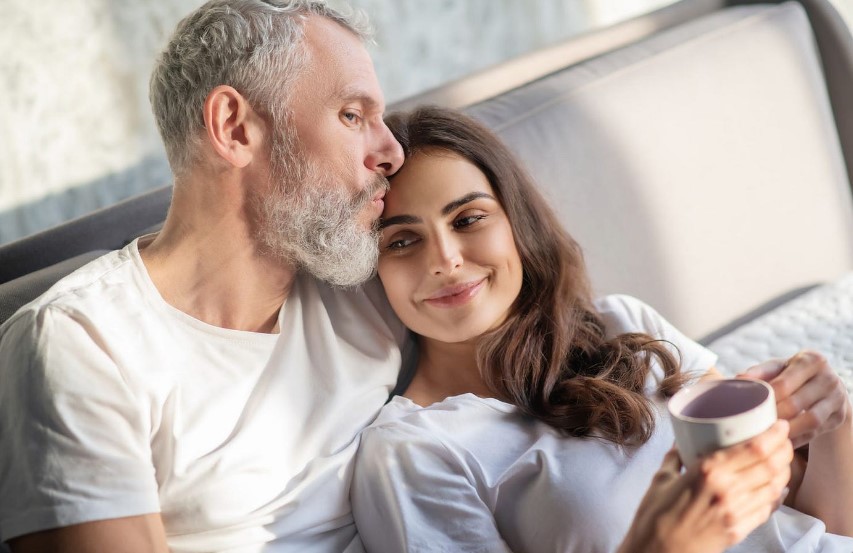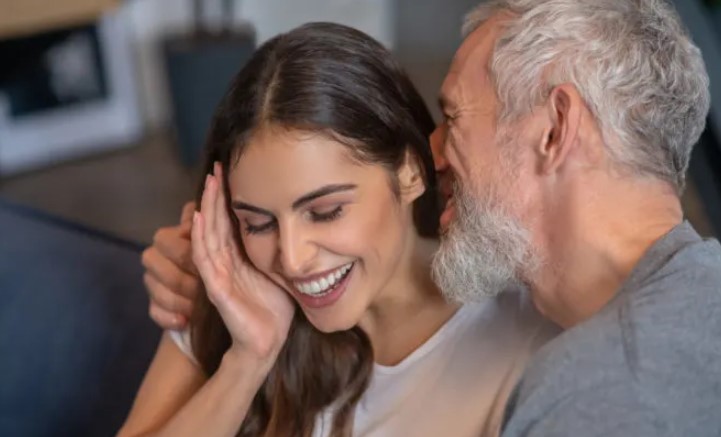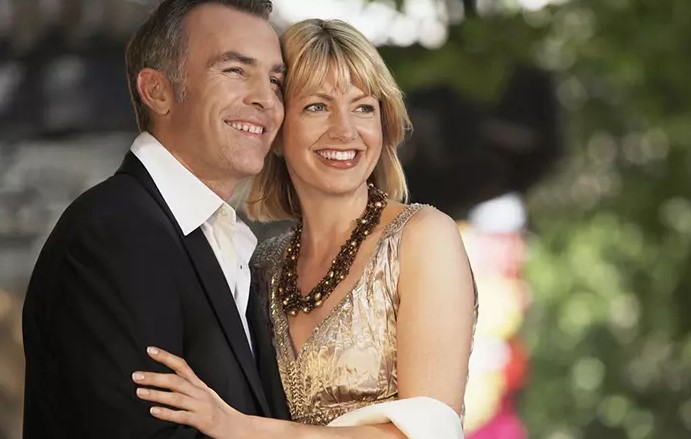Ever wondered why older men seem inexplicably drawn to younger women? You’re not alone. It’s a trend that’s been around for centuries, yet it continues to baffle many. This age-old question has sparked countless discussions, debates, and studies, yet the answer remains elusive.
In this article, we’ll delve into the heart of the matter, exploring the psychology, biology, and societal norms that intertwine to shape this intriguing phenomenon. So, whether you’re curious about the dynamics of your own relationship or you’re just intrigued by the concept, we’ve got you covered. Stay tuned as we unravel the mystery behind why older men gravitate towards younger women.
Exploring the Phenomenon: Why Do Older Men Like Younger Women?

Venturing into this mystery, it’s crucial to consider numerous factors that intertwine, contributing to the preference of older men for younger women. These factors span psychological aspects and societal influences, each playing a distinctive role. Buckle down and delve deeper into this captivating phenomenon.
Psychological Factors Behind the Attraction
Deciphering this fascination begins with understanding the core psychological intricacies at play. Evolutionary psychologists argue that men’s attraction to young women can be traced back to our ancestors. Males sought fertile partners to ensure the continuation of their genetic line. Since fertility in women is related to age, younger women became the preferred choice.
Moreover, humans tend to relate youth with physical attractiveness and vigor. As people age, finding youth attractive may be a way of seeking liveliness or remembrance of their own younger days. Men’s desire for youthfulness and verve, hence, may also contribute significantly to their fascination with younger women.
Another psychological determinant is care-giving behavior. As men age, their need for care increases. Younger women are often seen as better caregivers, thereby making them an appealing option for older men. It’s this meshwork of evolutionary, cognitive, and behavioral factors that construct a man’s preference.
What looks like a simple attraction, in reality, is a complex interplay of numerous psychological elements. So, it’s not as straightforward as it first appears.
Societal Influences and Perceptions
Veering from the psychological spectrum to the societal realm, it’s noticeable that societal influences and the way society perceives relationships play a pivotal role. It’s not uncommon to see an older man with a younger woman in the media, advertising, or movies.
It’s these depictions that embed certain stereotypes and perceptions within the community. For instance, older men dating younger women is often seen as a sign of status or achievement. Conversely, younger women are perceived as symbols of beauty and youth, making the pair an appealing match in society’s eyes.
However, norms and perceptions vary dramatically across different cultures and societies. In some societies, an older man-younger woman relationship is frowned upon, while in others, it’s quite acceptable and even encouraged.
It’s important to underscore that societal norms and perceptions do shape human behavior and preferences, sweeping in older men’s attraction to younger women as well.
This phenomenon, as you now understand, doesn’t hinge on a solitary factor but is rather an intricate dance of psychological components and societal influences. A holistic understanding of both realms unveils the broader picture behind why older men like younger women.
Read More : 15-fun-activities-to-strengthen-your-bond
Biological Perspectives

Falling under the biological perspectives, two key factors play a pivotal role: evolutionary advantages and health and vitality considerations. Let’s unfold these factors:
Evolutionary Advantages
Piecing together the puzzle from an evolutionary perspective, it’s convincing that older men’s preference for younger women hinges on reproductive potential. According to evolutionary psychologist David Buss, the desire for partners capable of producing offspring serves as a natural selection process.
Examining data from over 37 cultures, Buss found older men’s attraction to younger women was nearly universal. They prefer partners in their early 20s, around the peak of fertility. This reproductive capability is further signified by physical signs of youth, such as smooth skin, full lips, and lustrous hair. In other words, these aesthetics symbolize fertility, invariably driving the preference.
Health and Vitality Considerations
On the other hand, health and vitality considerations offer another angle. Health, vitality, and the implied promise of long-term companionship are aspects associated with younger women. Psychologist Viren Swami explains that a younger partner is perceived to have a longer ‘shelf life’, hinting at sustained companionship and help in old age.
Reduced chances of illness and a higher energy level associated with youth also contribute towards this inclination. Older men, consciously or subconsciously, are drawn to the robustness and vigor that come with youth. Youth represents strength, resilience, and the zest for life, qualities that can be refreshing and reinvigorating for older men.
Cultural and Social Dynamics

Cultural and social dynamics considerably affect the pattern of older men being attracted to younger women. The impact of media and economic stability play pivotal roles in shaping these social and cultural norms. While the aforementioned biological perspective considers youth and fertility, these cultural and social elements offer an additional lens through which to view this pattern.
Media Impact and Stereotyping
Media portrayal contributes significantly to the image of older men with younger women as an ideal. On-screen depictions often romanticize this age discrepancy, broadcasting images of strong, successful older men alongside youthful, vivacious women. Let’s take Hollywood movies, for instance. Blockbusters often feature an older male protagonist partnered with a considerably younger female co-star, perpetuating the stereotype that embraces this age-gap relationship.
However, these portrayals don’t just limit themselves to the big screen. Advertising, music videos, and television series all serve as platforms that reinforce this pattern. When you repeatedly witness these depictions, it’s natural for them to become ingrained in your perception, influencing societal opinions and acceptance of this dynamic.
Economic Factors and Security
Economic stability and security embody another key aspect influencing this pattern. It’s no secret that financial stability often associates with age, with older men generally having more resources and wealth than their younger counterparts. As humans, we seek security and stability in our relationships. Younger women may subconsciously find this financial stability appealing, viewing it as a source of security in the relationship.
Research, such as that conducted in 2017 by Pollet and Nettle, also supports this, asserting that women in regions with higher income inequality show a stronger inclination to prefer older men. This correlation highlights that, beyond biological factors, the security sought in economic disparity contributes to why older men frequently pair with younger women.
By understanding these cultural and social dynamics, you gain a broader perspective on why older men might find younger women appealing. It’s essential to view this phenomenon as multi-faceted, with influences branching beyond simply biological to include social, cultural, and economic factors.
Read More : 15-signs-of-a-healthy-relationship-dynamic
Personal Testimonies and Case Studies

Diving deeper into personal testimonies and case studies offers enriched perspectives to our understanding of why older men lean towards younger women. This section sheds light on real-life experiences, alongside expert interpretations.
Real-Life Experiences
In supporting the biology and societal framework discussed earlier, several personal narratives highlight shared experiences. For instance, Jack, a 60-year-old businessman, cites his attraction to youthfulness. His attraction revolves around vitality and an inherent zest for life, commonly found in younger women. In contrast, 70-year-old George, with a fondness for women half his age, admits to being drawn to their ambition and confidence, which he perceives as refreshing.
Expert Opinions and Analysis
However, personal testimonies alone won’t provide a holistic view. Expert voices add depth and enrich the understanding of this phenomenon. Dr. Jane Reed, a renowned psychologist, reasons that older men’s attraction to younger women could be driven by a desire for affirmation of their vitality. This echoes findings from evolutionary theorists who argue this preference might be hard-wired into men’s psychology.
Contrarily, sociologist Dr. Susan Wade points out the societal forces at play. She argues that economic disparity and media portrayal significantly influence patterns in male attraction. As older men attain financial stability, they’re likely to seek younger partners who offer novelty, a feeling of control, and physical attractiveness.
In a nutshell, this inquiry into personal testimonies and expert analysis emphasizes age-old truths while highlighting nuanced viewpoints. It underscores the complexity of male attraction, governed by both inherent instincts and construct of societal norms.
The Impact on Relationships

Let’s delve into the dynamics that this age preference introduces into relationships. Information relies on credible research and experiences from those who’ve navigated these waters.
Challenges and Dynamics of Age-Gap Relationships
Age-gap relationships aren’t without complexities. Power dynamics may tilt, given the general economic stability of older men. In relationships like these, there’s a chance of a skew in decision-making, often favoring the older partner.
You’ll find generational gaps may lead to distinct entertainment preferences, may it be music genres or movie styles, leading to potential disconnect in shared experiences. Aging is inevitable. As an older partner, health issues might surface earlier and could become a source of concern for the younger partner.
However, it’s not all challenging. Age-gap relationships also create enriching exchanges. You will find wisdom meeting ambition, and experience merging with novelty.
Building Successful Relationships Despite Age Differences
Despite potential pitfalls, many age-gap relationships flourish. So, how can they weather the storm? Open communication forms the backbone of such relationships. Addressing potential issues head-on mitigates larger conflicts down the road.
Embrace the age difference instead of attempting to minimize it. Older partners shouldn’t suppress their age in an attempt to match their younger counterparts. Contrary, younger partners shouldn’t rush maturity to conform to their older companions. In other words, it’s about cherishing the unique dynamics each person brings into the relationship.
Mutual respect and shared values still reign supreme. Age might introduce unique challenges, but invaluable attributes like respect, compatibility, and love aren’t confined to age parameters. Successful relationships, despite age differences, champion these principles.
Lastly, societal acceptance matters. Navigating scrutiny and judgment from society needs strength and commitment. Withstanding these pressures, indeed, builds a solid relationship foundation.
Read More : 10-tips-for-navigating-relationship-challenges
Conclusion
So, you’ve seen the various reasons why older men are drawn to younger women. It’s a multifaceted issue, with roots in evolutionary biology, societal norms, and personal preferences. The challenges in age-gap relationships are real, but they’re not insurmountable. It’s all about understanding, mutual respect, and open dialogue. Remember, every relationship is unique, and age is just a number. It’s the shared values, respect, and love that truly matter. So, let’s embrace diversity in relationships and create a more understanding, accepting society.
Frequently Asked Questions
What are the factors influencing older men’s attraction to younger women?
The attraction often stems from evolutionary, biological, cultural, and social factors. The article discusses these aspects extensively, including insights from experts and personal testimonies.
Are age-gap relationships always challenging?
Not necessarily, although age-gap relationships can bear unique challenges like power imbalances, generational gaps, and health concerns, success often relies on handling these challenges effectively.
How can an age-gap relationship be successful?
Successful age-gap relationships often thrive on open communication, mutual respect, shared values, embracing age differences, and societal acceptance. Overcoming the complexities can lead to building strong relationships.
Does societal acceptance matter in age-gap relationships?
Yes, societal acceptance plays a significant role in age-gap relationships. While it should not solely dictate the relationship’s course, the acceptance can ease external pressures and potentially prevent social isolation.

